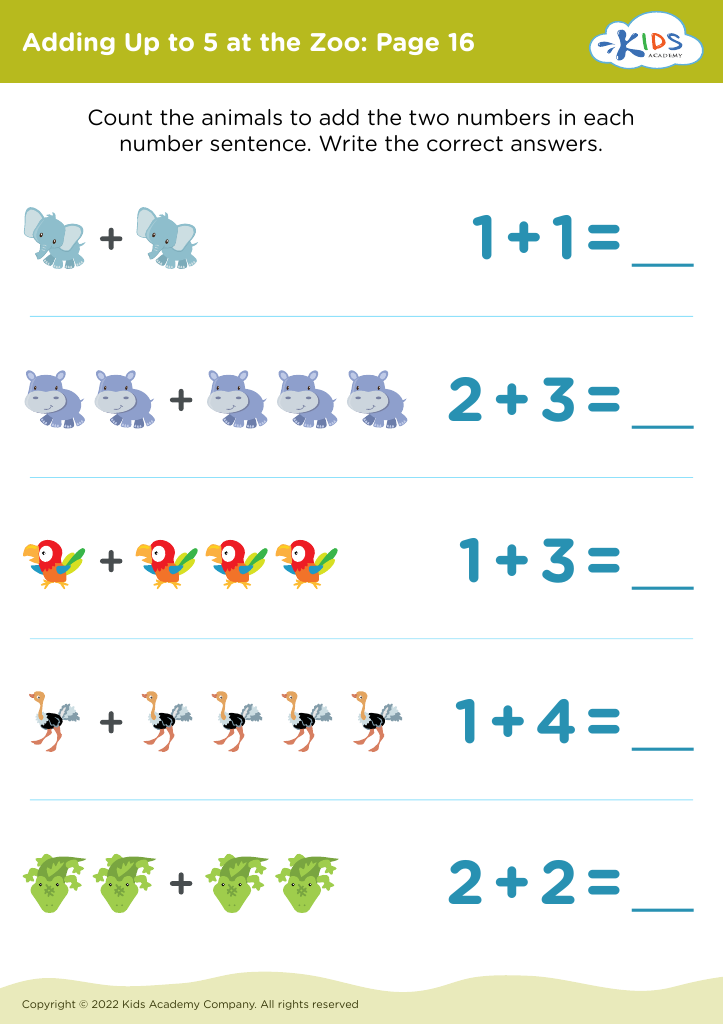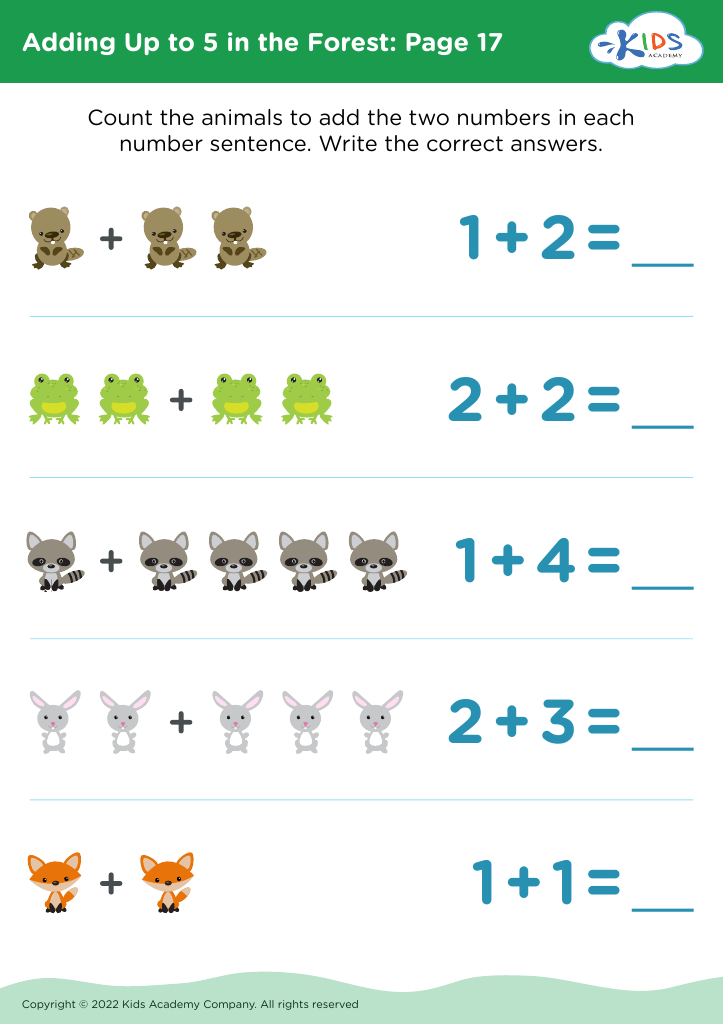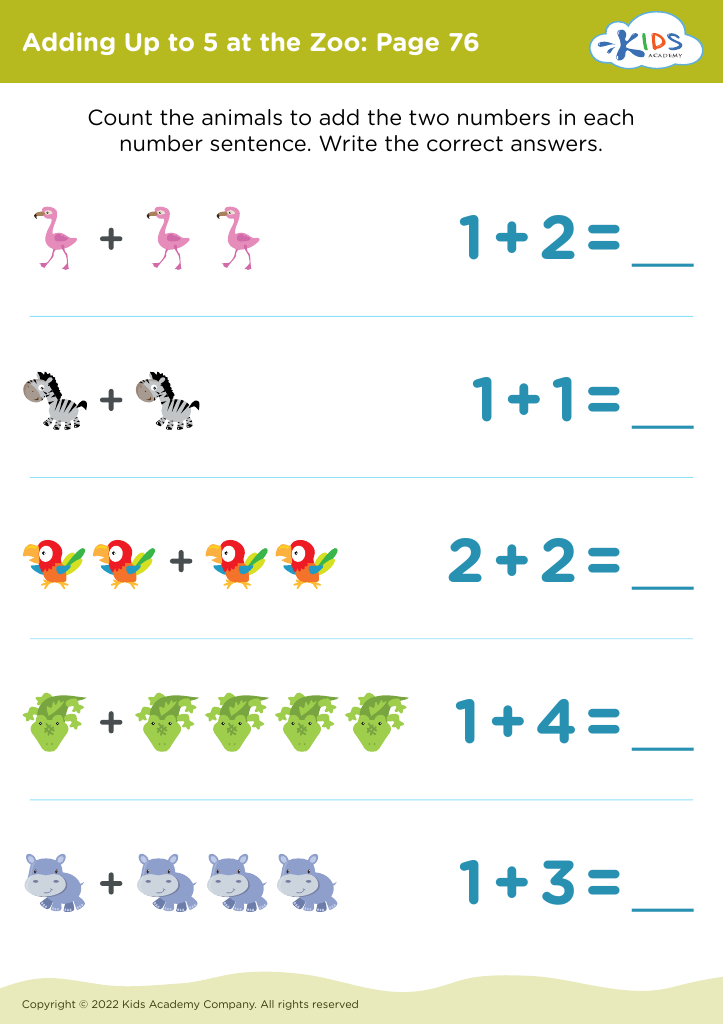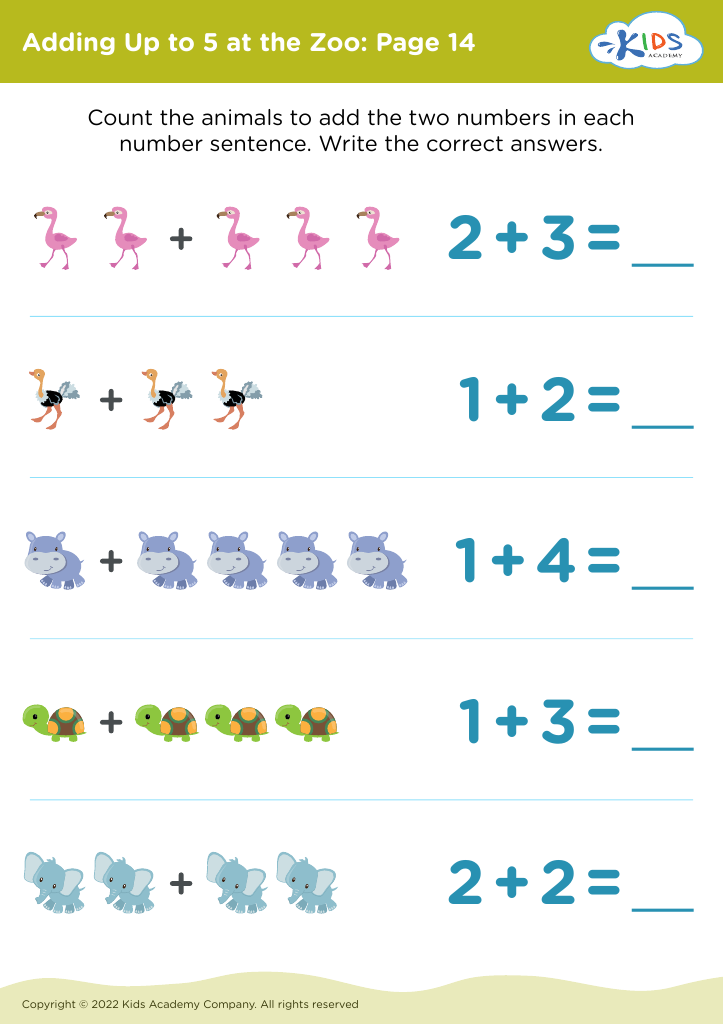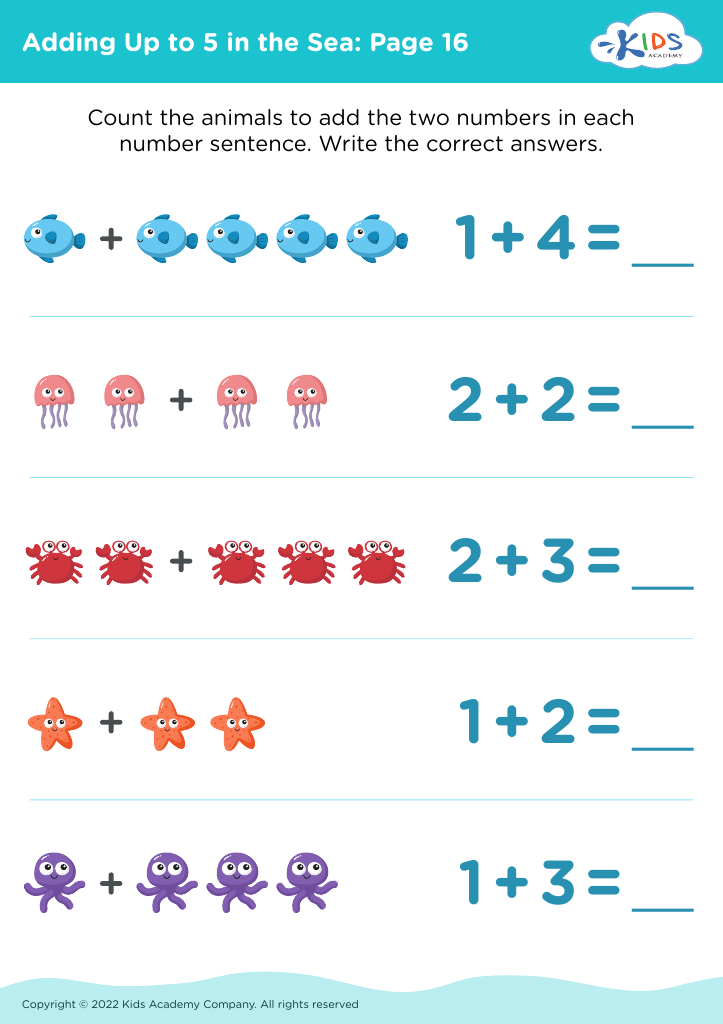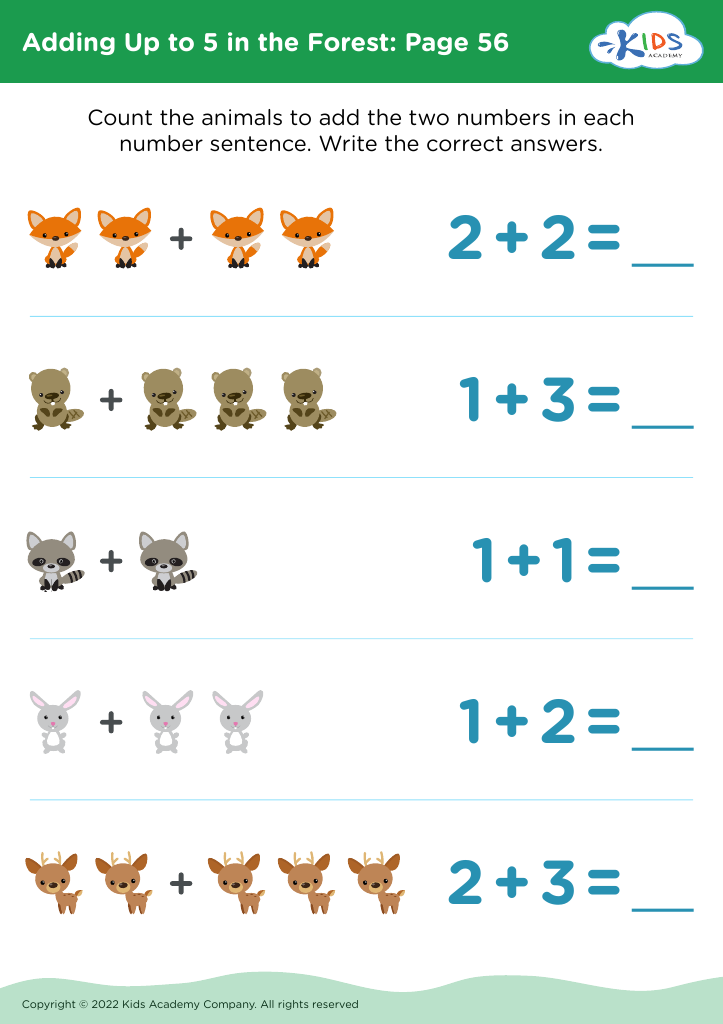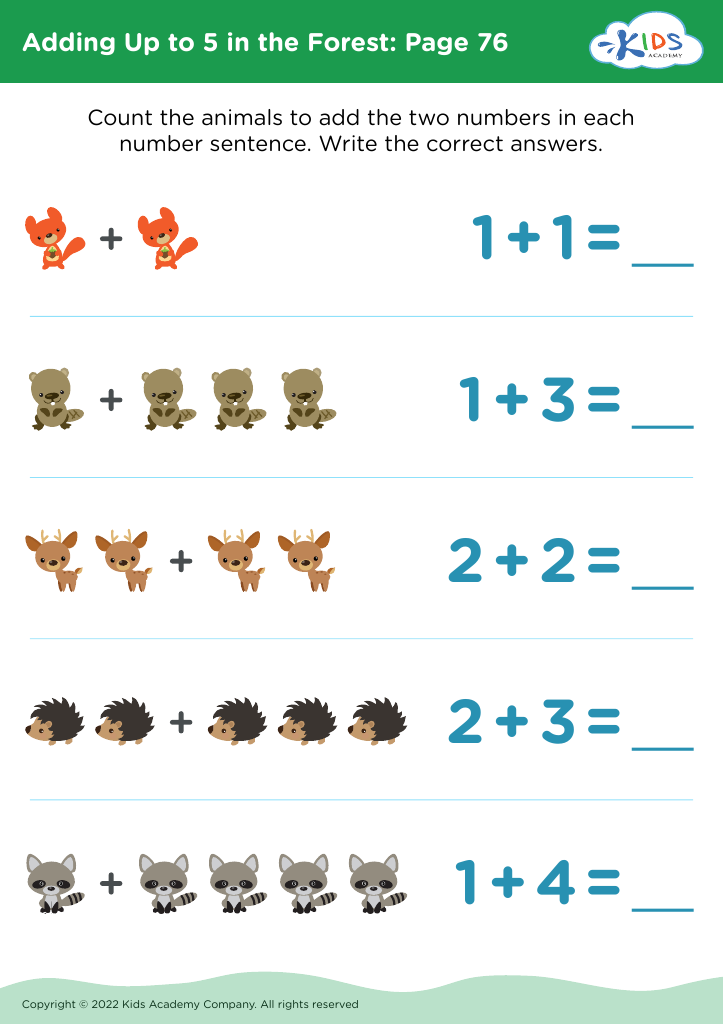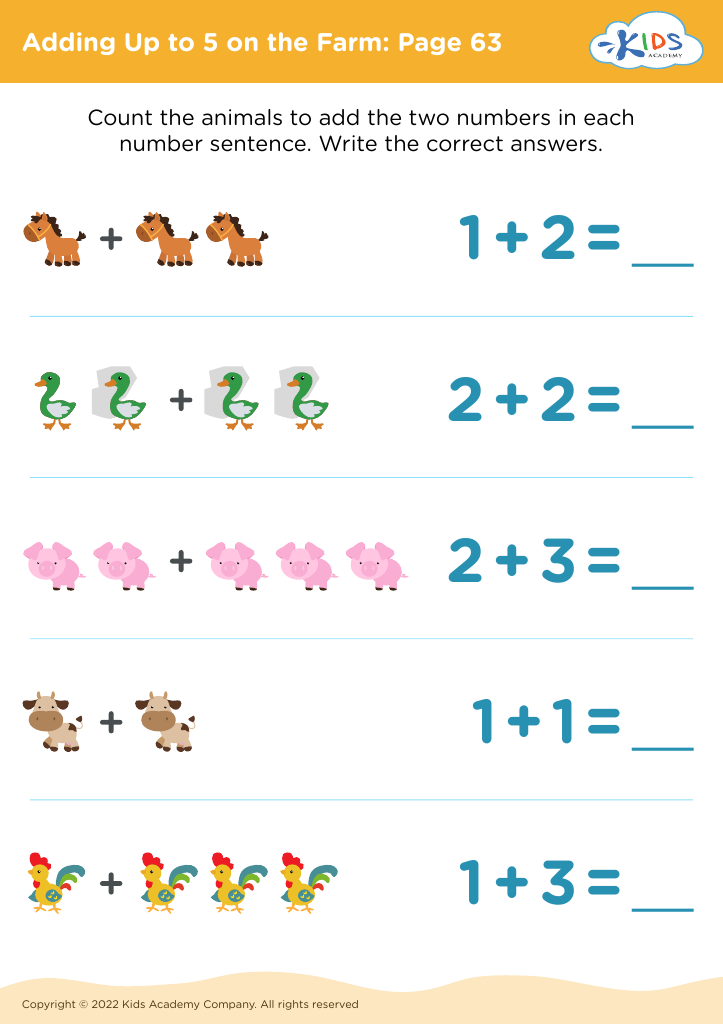Problem Solving Addition Worksheets for Ages 3-5
12 filtered results
-
From - To
Discover our engaging Problem Solving Addition Worksheets designed for children ages 3-5. These interactive resources foster early math skills, empowering young learners to tackle addition challenges through fun, colorful activities. With a focus on problem-solving, our worksheets encourage critical thinking, boosting confidence as kids learn to apply addition in everyday contexts. Parents and educators can seamlessly integrate these activities into playtime or classroom lessons, ensuring a creative and enjoyable learning experience. Support your child’s mathematical journey with our expertly crafted worksheets that promote both learning and fun, laying a solid foundation for future success in math!
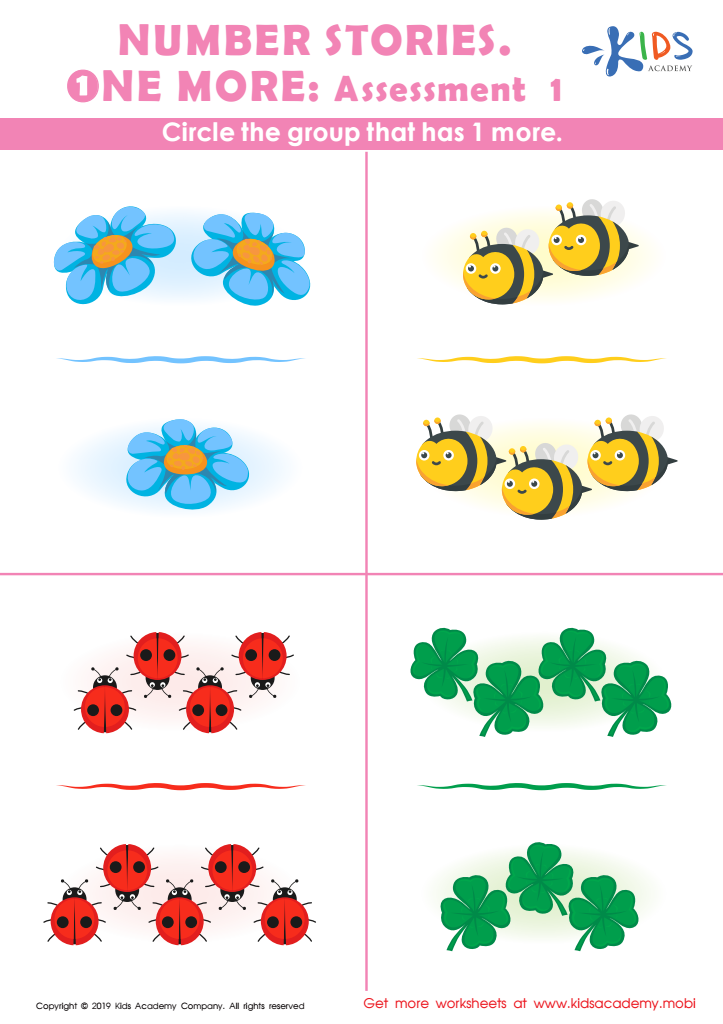

Number Stories One More – Assessment 1 Worksheet
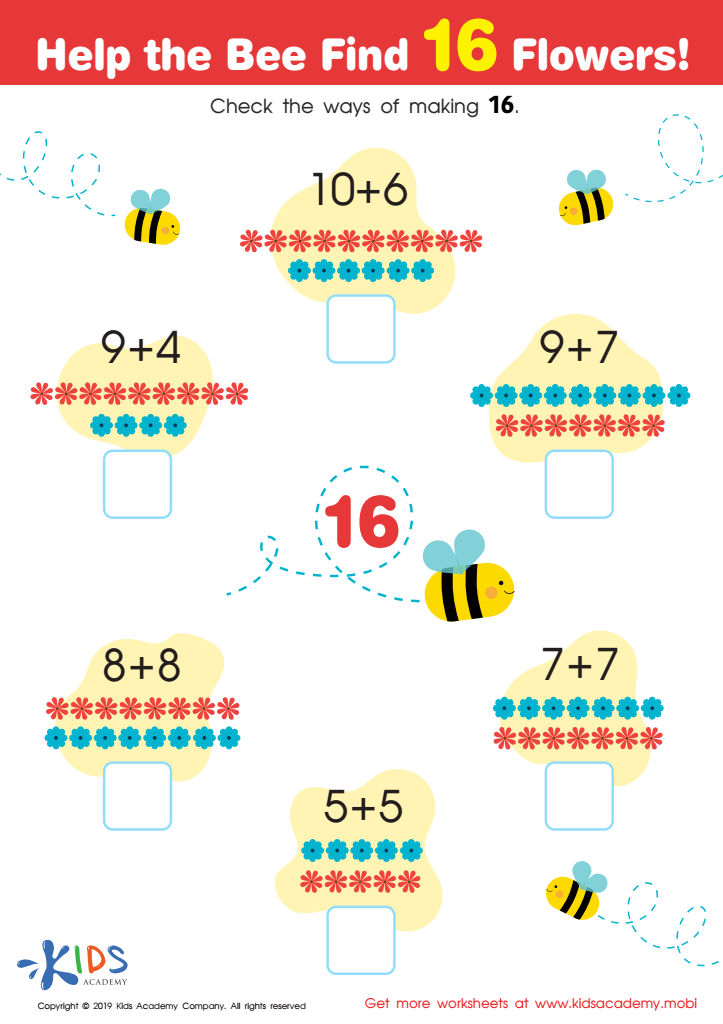

Help the Bee Find 16 Flowers Worksheet
Parents and teachers should care about problem-solving addition for children ages 3-5 because it lays the foundation for early math skills and cognitive development. At this age, children are naturally curious and eager to explore the world around them, making it the perfect time to introduce concepts like addition through engaging activities. Learning to solve problems involves critical thinking, logic, and reasoning, which are essential skills not just in math, but in everyday life.
Problem-solving in addition helps children understand relationships between quantities. It also promotes perseverance, as they learn to tackle challenges and work through mistakes, building their confidence. Furthermore, incorporating fun, hands-on activities—like using toys, counting snacks, or playing games—encourages a love for learning and makes abstract concepts more tangible.
By fostering an early interest in math, parents and teachers can encourage lifelong skills that extend beyond the classroom. As these children grow, their problem-solving abilities will enhance their capabilities in more complex subjects, ultimately preparing them for future academic success and equipping them with critical thinking skills essential for navigating decision-making in their everyday lives. Thus, early exposure to problem-solving addition is crucial in developing well-rounded, capable learners.
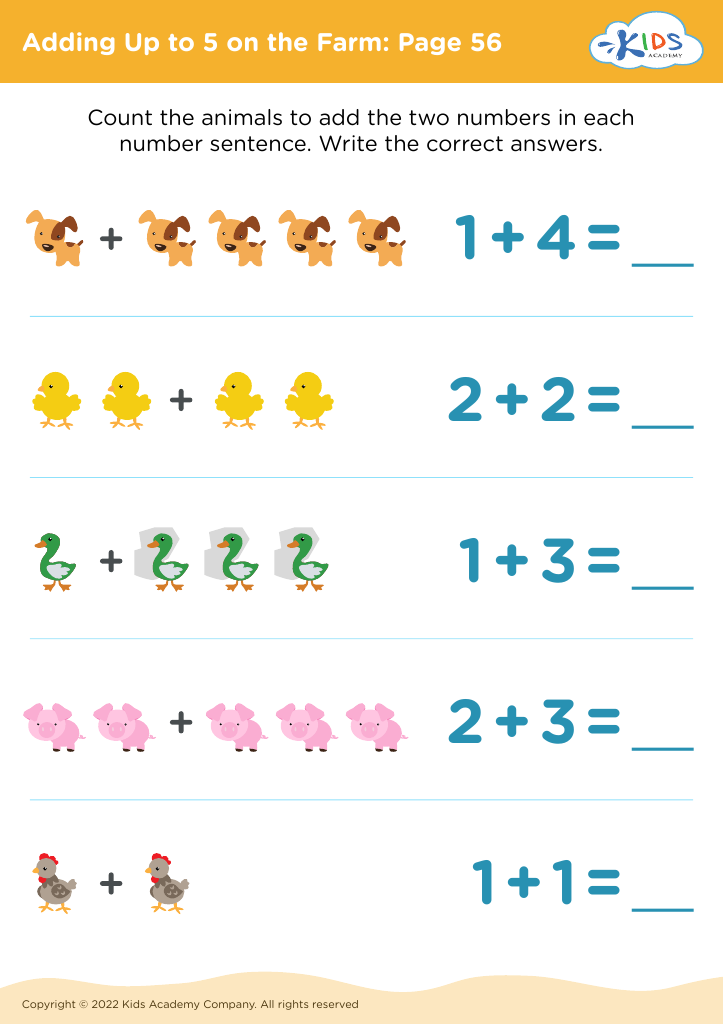

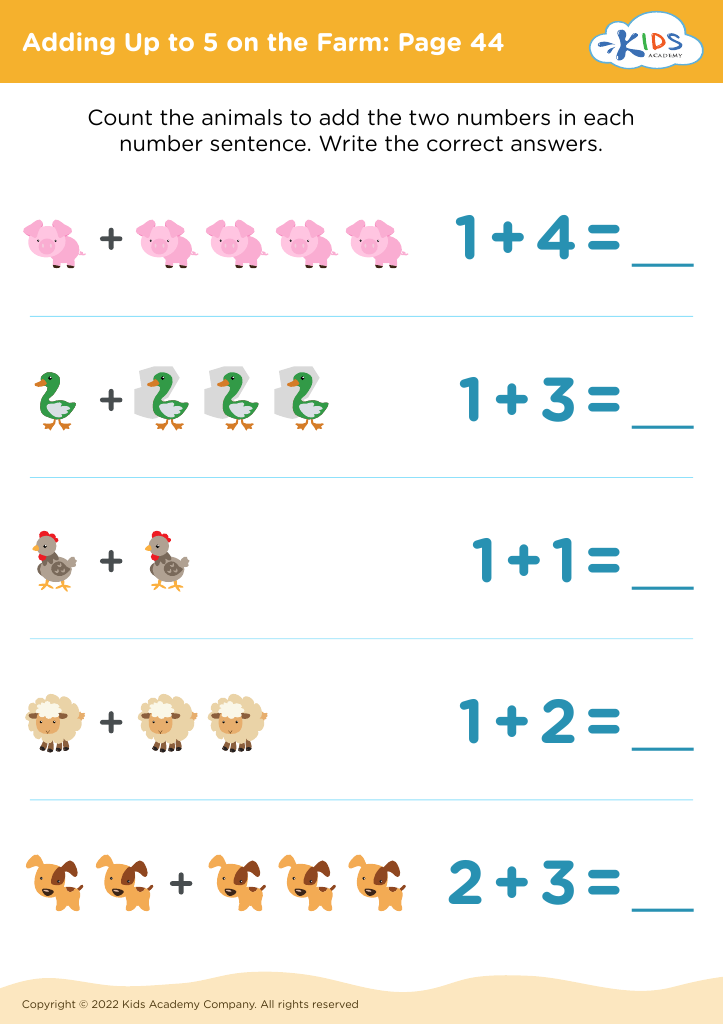
 Assign to My Students
Assign to My Students
